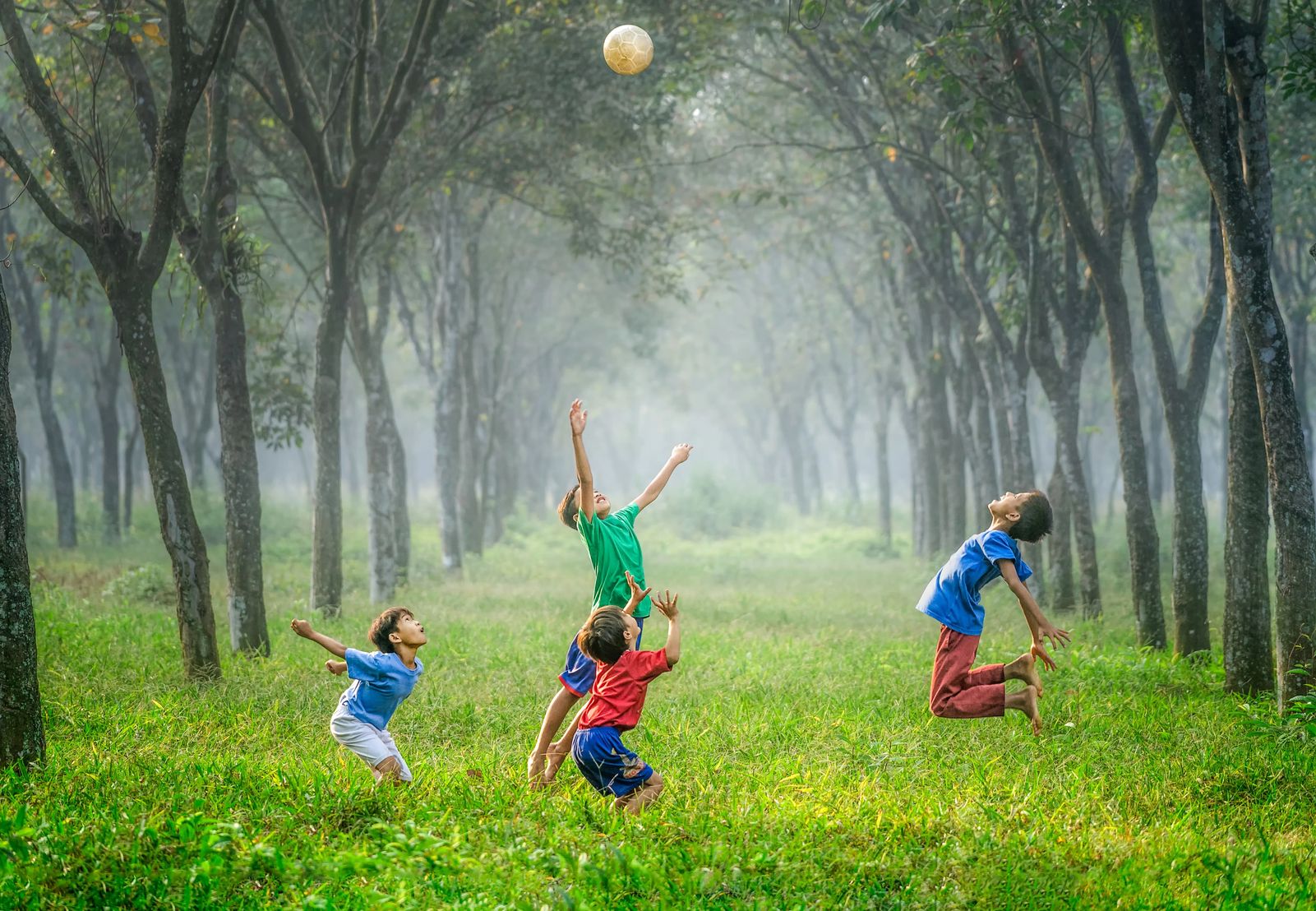Activity is Vital to Your Child's Development
Written by Ruth Barker
Did you know that around eighty percent of the foundation neurons of the brain develop in the first six years of life?
So, an early environment that invites a child to actively participate is imperative to the growth and development of the human being! Why is such activity just so very important? Engaging activity isn’t something a child does meaninglessly before they go off to formal schooling. Through the act of play in a beautiful environment that is lovingly prepared by the parent or carer, the child develops into a wonderful and fulfilled human being whose brain becomes so well established and prepared for life.
Lay the right foundation and the rest will surely follow.

By engaging in the physical action, the muscles and the senses of the body send messages to the developing brain that absorbs, without effort, the stimulus from the environment and as a result, neuron growth occurs. Play simply grows the brain.
Play makes the body a strong entity. It builds core and limb strength, it coordinates and refines movements, and it prepares the pre-schooler’s body for future academic subjects. A child cannot effectively spend all day at school when the body is not strong or coordinated, nor can they hold writing implements or use a computer without great core, limb, and hand strength.
A child develops cognition through exploration and play. To be a successfully educated person, thinking for one’s self and being able to solve problems is vital to development. Playing for periods of time with whatever the child enjoys, also develops independence, attention and concentration skills. The pre-schooler who grows with a strong sense of these prior to schooling is simply a more successful student.
Language and literacy are wealthy experiences with play.

Language and literacy skills develop through the act of play. A child begins to talk and learn a rich vocabulary by engaging with other human beings, adults or children. A child hears language and eventually expresses it through the act of being involved in reciprocal communication. The more a child talks and hears a rich vocabulary, the more easily literacy will happen.
Similarly, play increases an understanding of math and science concepts. Through sorting, tipping, filling, measuring, exploring, and engaging mediums that include nature, a child develops a mastery of mathematical and scientific principles and a wonderful understanding of the world around them.
As a parent or carer, there are some simple ways to inspire your pre-schooler to play. Here are a few great tips from my book THE PARENTING 5! PRACTICAL AND INDEPENDENT LITTLE PEOPLE!
- Prepare an environment that holds safety as the first priority.
- Design for the pre-schooler a clearly defined routine and a predictable lifestyle.
- Provide child sized furnishings and tools to assist the development of independence, attention and concentration. This includes a small table and chairs and a mat to sit on.
- Create “a place for everything and everything in its place,” where order is important so that the young child feels in control of their surroundings
- Avoid toy boxes. These do little for the developing brain. Parts go missing and the pre-schooler cannot heed the purpose of the activity, causing frustration.
- Provide developmentally appropriate activities and toys that are not overtly stimulating or have little developmental purpose. Choose carefully and ask yourself, what would this do for my child’s development at this point in time?
- Choose activities that develop muscles, stimulate individual senses, encourage problem solving, and language development. Allow for some solitary and some group play, and always inspire your child by following their interests.
- Arrange the toys and activities on shelving and in baskets and trays, with only a few displayed and change them on a regular basis.
- Show the child how to effectively use each material and remove them once a child shows no further interest. This is a sure sign they are ready for the next step of development.
- Encourage the pre-schooler to return their activities before choosing another.
- Show the child wonderful and engaging reciprocal communication whilst they play. Read many books, sing, and chant to encourage rich vocabulary.
- Allow the pre-schooler uninterrupted time to engage play, for sustainable periods.
Remember: Play is vital to your child's development and potential and isn’t meaningless to the human being. Inspire them to play!

Ruth Barker began her career with little children in 1989. She has worked as a Montessori educator, special needs educator, conference presenter, parenting consultant, magazine columnist, and author of both fiction and non-fiction for parents and small children.
She has an academic history in Social Sciences, Consumer Sciences, Montessori Preschool Education and is currently studying Occupational Therapy with a paediatric interest.
She is a former Citizen of the Year awardee and a finalist in The Pride of Australia Medal.




















